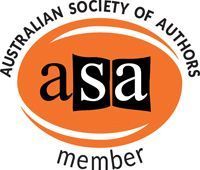Very last minute submission to the Productivity Commission draft report (closes at 11.59 tonight, so I made it with almost an hour to spare!)… Thought I’d share it here – a bit rough and ready, but for those of us who think a local book culture matters :–
[More info about all this from the ASA here; and a great article from Richard Flanagan here]
Submission to the Productivity Commission Draft Report (April 2016) – Intellectual Property Arrangements
from: Beth Spencer
I am writing to express my strong dismay and disagreement with the Productivity Commission’s recommendations regarding the legal term of copyright and the removal of Parrallel Importation restrictions. I am also concerned about the recommended change from a Fair Dealing to Fair Use copyright model.
I am writing as both a consumer of books, and of cultural products drawn from books, and as a cultural creator and author.
- Parallel importation restrictions (PIR).
As many have no doubt already pointed out, books have already become cheaper in Australia over the past six years since the earlier Productivity Commission report, without any changes to Parallel import laws. Australians are also free to order books from overseas at any time if they would prefer an overseas version. So there seems no good rationale for removing PIR.
When territorial rights and PIR have been removed, as in New Zealand, the results – as predicted by the book industry and writer’s organisations – have been disastrous to their culture, to the economic contribution of local books, and has not resulted in a greater range, access or cheaper books.
Every other country – including large powerful nations such as the US and Britain – protect their publishing and writing sectors by having territorial rights and PIR. It seems madness for a small and ecologically fragile industry like that in Australia – which currently is contributing well to the economy by generating jobs and export income – to take the risk of removing PIR without clear and necessary goals, and without clear and convincing research and evidence that it would be beneficial to book culture and access.
The PC’s report seems to be arguing more from a belief than from evidence.
A healthy and creative book culture and industry within Australia is essential to a healthy and creative culture. Books commissioned, written, edited and published by Australians about Australia cannot simply be substituted with books from overseas if the local industry collapses.
Books are one of the ways we have a cultural conversation about our stories, history, values, dreams and politics.
I was interested in what Sebastian Junger said recently in an interview. He talked about how we evolved in small groups where you could gather people around and discuss who we are, how we want to live, what are our values. But we no longer live in small groups, so we can’t do that anymore. But we still need to. And in some ways it’s even more important now than when we lived in groups of fifty. He suggested that the only real way now to have that kind of collective conversation – the only real way that’s cheap enough to make it available for enough people, and that contains enough information to be shared and commonly understood and enough depth and detail – is through books.
Books, he said (and I agree with him) are sacred objects in the sense that our society can’t really survive without them.
PIR protects our local book culture and allows it to flourish and contribute to the nation, and to compete on the world stage.
Removing PIR in a country of our size (or any size) is a highly dangerous experiment, and I see no valid arguments or evidence for doing so.
Not only are books good value in Australia and becoming cheaper each year in relative terms, readers also have access to libraries and ebooks. Authors are certainly not the ones denying people reading matter, and it seems a very false picture to present us as doing this.
I think you will also find that most readers are concerned with the quality of books, and the quality of stories we produce and have access to, not just the price.
- Reducing term of copyright.
This is a recommendation but as it would put us at complete odds with the rest of the world, I can’t see how it can be a serious recommendation.
No one would want to grant rights to Australian publishers or have their books distributed in Australia if the copyright expired after 15-25 years. Thus far from increasing access within Australia it could just dry it up altogether.
While there may be some arguments for reducing the current 50 or 70 years after death provisions – perhaps to 10 or 20 years after death — and purely for practical reasons as it is often difficult to find or deal with an inheritor of copyright when many years have passed — I see absolutely no reason or good argument to limit the term of copyright for books written by a living author.
To have a book’s copyright expire 15-25 years after publication is the worst kind of alienation of the product of one’s hard labour.
It seems those writing this report and recommendation lack an understanding of how a writer’s career develops, and how it may take many decades to build a sufficient reputation so that one’s backlist becomes valuable. Nor the way it often takes decades for a film project to get up, and that the rights and residuals on this kind of work can be essential to funding future work.
Without the possibility of this ‘business plan’, we will become a culture of one-off book writers who give up once they realise the incredible amount of commitment and sacrifice it takes to continue writing and honing your craft and output, and realise that they will forever be writing frantically like a mouse running on a wheel just trying to keep up, with no hope of being able to capitalise on past work down the track through a book being made into a movie or tv series, or set on a curriculum.
Quality will suffer. Book publishing will suffer. Readers will be the poorer.
- Fair dealing or Fair Use.
This is a complex topic, but as things stand at the moment, I support the ASA’s position that we are better off retaining our ‘Fair Dealing’ model, where use is spelt out, than going to a model where everything is via precedent and testable in court.
With Fair Use, it can in effect become the one with the most money who sets the laws, as is already happening in the case of music corporations and Google.
Copyright when it is protected for the right reasons exists as a generative boundary that makes it safe and possible for people to create more work.
But when it is constantly open to interpretation by courts and able to be manipulated by corporations, then it becomes something that is restrictive of creativity, which is not what the PC (or any of us) wants.
Furthermore, it seems that if we move to Fair Use we will lose the system upon which the very successful CAL and ELR schemes operate, which generate heaps of funds that are ploughed directly back in to creating more work.
Thank you for reading my submission.
Like the Productivity Commission I too would like to see a creative society where books, and the products generated from books, are abundant, high quality, diverse and accessible. But I believe that this can only happen within a sustainable creative system, and that copyright protection – spelt out clearly and monitored so it functions for the reasons and in the spirit intended (to create the conditions under which people are able to earn money and hence write more) – can be a generative and productive boundary, not necessarily a restrictive one.
Sincerely,
Beth Spencer

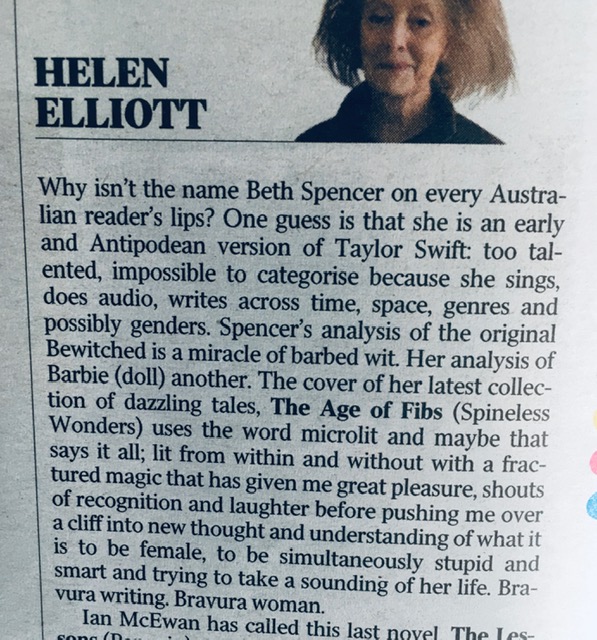
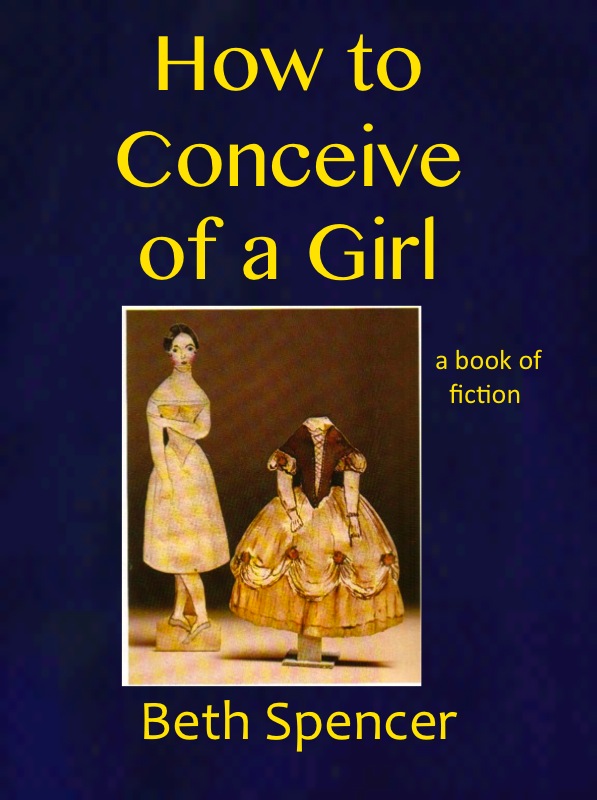
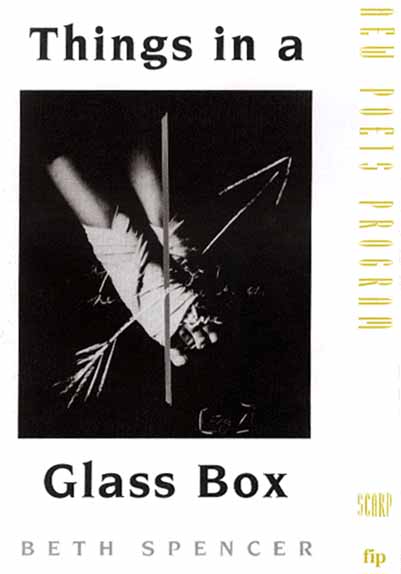

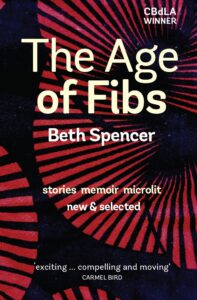
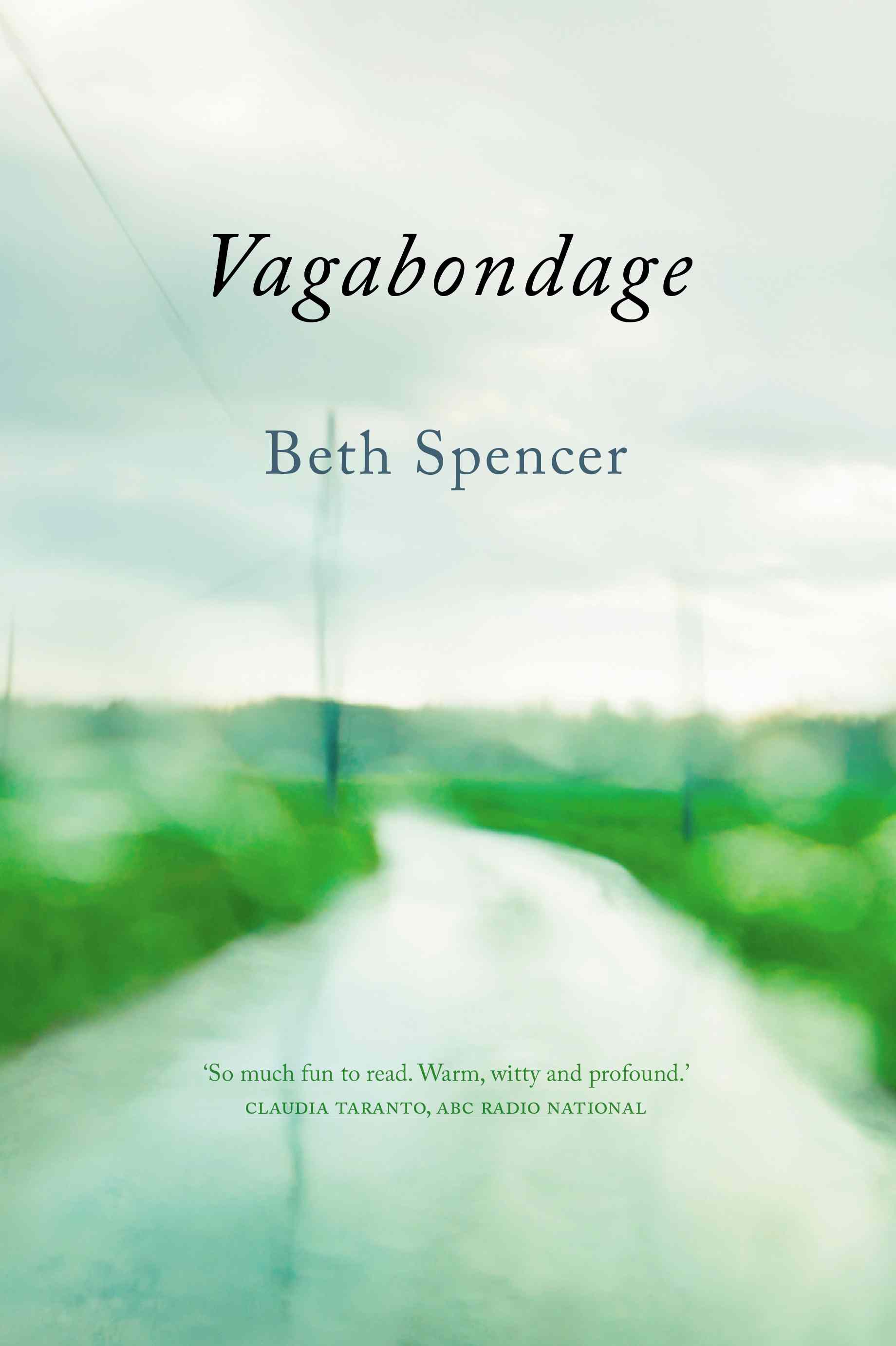
![[The Party of Life, cover]](http://bethspencer.com/blog/wp-content/uploads/2012/11/sm-edged-front-cover-Party-of-life-227x300.jpg)

